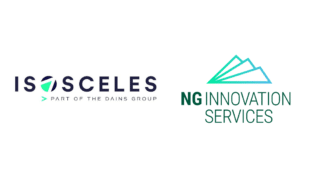For graduates pursuing a career in accounting, choosing the right professional designation is a crucial decision. Among the most respected options at CIMA (Chartered Institute of Management Accountants), ACA (Associate Chartered Accountant) and ACCA (Association of Chartered Certified Accountants), each offering a distinct pathway into the profession.
At Isosceles, we specialise in supporting graduates through the CIMA qualification, which focuses on management accounting and strategic financial leadership. These are skills that are particularly well suited to fast-growing and ambitious businesses.
While we champion the CIMA route, it is helpful to understand the broader landscape. The ACCA and ACA qualifications are delivered respectively by ACCA (the Association of Chartered Certified Accountants) and ICAEW (the Institute of Chartered Accountants in England and Wales). Both are well-established professional bodies, with global reach and respected histories.
In this blog, we outline the key differences between CIMA, ACA and ACCA, explain why CIMA is the preferred route at Isosceles and share how our graduate training programme is designed to help aspiring management accountants build meaningful, long-term careers.
Last updated: 4 August 2025
Follow us on LinkedIn.
Which is the right accounting qualification for you? ACA, ACCA and CIMA?
- The CIMA qualification is assessed by CIMA (Chartered Institute of Management Accountants)
- The ACA (Associate Chartered Accountant) qualification is delivered by the ICAEW (Institute of Chartered Accountants in England and Wales)
- The ACCA qualification is delivered by the ACCA (The Association of Chartered Certified Accountants).
How does the CIMA qualification work?
The CIMA qualification is a globally recognised professional accounting certification focused on management accounting. Unlike traditional financial accounting qualifications, CIMA emphasises the use of financial data to support business strategy, decision-making and performance management.
As a leading management accounting qualification, CIMA is highly respected across the finance and accounting industry. Many top employers actively support and sponsor their employees through the CIMA training programme, making it a popular choice for graduates and finance professionals seeking a career in management accounting.
Completing the full CIMA professional qualification typically takes around three years, although the duration can vary depending on prior experience and the amount of study time dedicated.
The CIMA certification framework is structured across four levels to develop comprehensive skills in both accounting and business management:
- Certificate Level – Builds foundational knowledge in accounting, business and finance
- Operational Level – Focuses on implementing business strategy and short-term decision-making
- Management Level – Develop skills in performance management and financial analysis
- Strategic Level – Covers long-term strategic planning, financial risk management and leadership
Related article | How does a graduate become a CIMA management accountant?
How does the ACA qualification work?
The ACA qualification is a highly regarded professional accounting certification offered by ICAEW. In its current form, it combines three years of structured on-the-job learning with the successful completion of 15 exams. However, key changes are set to take effect in September 2025, and we explore them in more detail later in this piece.
In addition to passing the exams, ACA trainees must complete 450 days of relevant work experience, as well as professional development and ethics training. This practical approach ensures that ACA-qualified accountants have both the technical expertise and real-world experience required to excel in practice-based roles (i.e. accounting and audit firms).
Related article | How does a graduate become a chartered accountant?
ACA Qualification Update: Next Generation ACA
The ACA qualification is evolving. ICAEW has announced the launch of the Next Generation ACA, with updates coming into effect from September 2025. This revised framework is designed to ensure the ACA remains relevant in a rapidly changing business environment, placing greater emphasis on digital skills, sustainability and data analytics, while maintaining the rigorous technical foundation the ACA is known for in today’s environment. These changes aim to better equip future chartered accountants with the knowledge and capabilities needed to thrive in modern finance roles.
How does the ACCA qualification work?
The ACCA qualification, offered by the Association of Chartered Certified Accountants, also requires practical work experience, the completion of 13 exams and ethical training modules.
One key advantage of ACCA is its flexibility. Candidates can pursue the qualification through full-time, part-time, distance learning or online courses, with multiple exam dates throughout the year. This flexibility appeals to a wide range of aspiring accountants balancing work and study.
CIMA vs ACA and ACCA: Why choose CIMA?
While ACA and ACCA are well-suited for traditional accounting and audit roles, the CIMA qualification stands apart by focusing on management accounting and business strategy.
Key advantages of CIMA include:
- Focus on business strategy: CIMA equips accountants with the skills to influence day-to-day business decisions and long-term strategy, making it ideal for those interested in finance roles within organisations and industry.
- Flexible study and work options: Unlike ACA, CIMA candidates can study and qualify independently without needing to be employed in a formal training contract. This flexibility enables more control over career progression.
- Industry relevance: CIMA is particularly valued by employers looking for professionals who combine financial expertise with strategic business insight.
How to find a graduate training scheme
At Isosceles, we are committed to supporting our trainee accountants through these demanding qualifications. Currently, we support team members pursuing both ICAEW’s ACA and the CIMA qualification. If you are a graduate ready to take the next step in your accounting career with tailored support and professional development, consider joining us by applying here.
Note: The ACA qualification will undergo significant updates under the Next Generation ACA, launching in September 2025, to reflect the evolving demands of the accounting profession. Learn more here.



